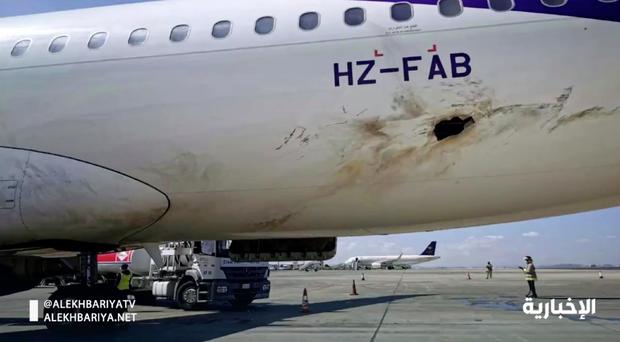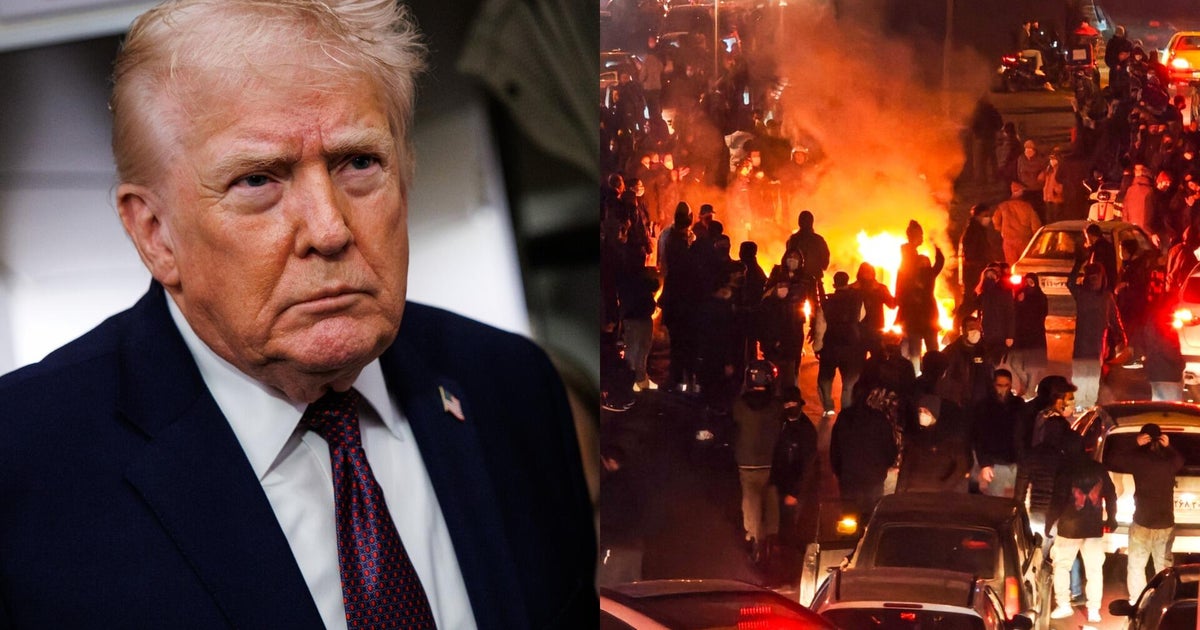Saudis going along with Biden's shift in Yemen policy for now, but there are other challenges
Amman, Jordan — A United Nations aid agency has warned that an escalation in fighting in Yemen's civil war is putting even greater pressure on its already-exhausted operations. The increasing violence will be just one more factor complicating President Joe Biden's efforts to end the six-year war that has claimed well over 100,000 lives.
"More people are expected to be displaced in the coming days as fighting escalates," said the United Nations Population Fund (UNFPA) in a bulletin. "Since early February 2021, more than 1,000 households are confirmed as being displaced from conflict-affected areas."
The escalation is due to a new offensive by Yemen's Iran-backed Houthi rebels, who are trying to seize the ancient, oil-rich city of Marib, 75 miles east of the country's capital Sanaa. The Houthis have held the capital for years amid the brutal civil war with Yemen's government, which is backed by the U.S. and Saudi Arabia.
"The attack on Marib must stop," U.N. special envoy to Yemen Martin Griffiths told the U.N. Security Council in a recent video conference. "It puts millions of civilians at risk, especially with the fighting threatening to reach camps for internally displaced persons."
His call has gone unheeded. The Houthis may have been buoyed by recent moves by the Biden administration. Early this month, the White House announced an end to Washington's years-long, staunch military support of the Saudi-led war in Yemen. The administration halted all weapons sales to Saudi Arabia as it "recalibrates" its relations with the Persian Gulf ally.
The White House is hoping the U.N. efforts to find a way out of the conflict will succeed, but the recent Houthi advance has made Griffiths sound less hopeful.
"The quest for territorial gain by force threatens all of the prospects of the peace process," the U.N. envoy warned.
On Wednesday, U.N. Under-Secretary-General for Humanitarian Affairs and Emergency Relief Coordinator Mark Lowcock warned that Yemen was "falling off a cliff," estimating that as many as four million people were in danger of a "long, slow, brutal, painful, agonizing process of starving to death" in the country.
Lowcock said he was hopeful about the new policy being adopted by the Biden administration and said, "the way its being welcomed, especially by the Kingdom of Saudi Arabia, does create a major opportunity of peace and prosperity in Yemen."
So far, Saudi Arabia hasn't voiced any resistance to the Biden administration's change in tack in Yemen policy, despite losing direct military support for its war against the Houthis, who are backed by its chief rival, Iran.
But the Houthis have only stepped up their fight.
The latest round of negotiations — modestly aimed at carrying out an exchange of prisoners that was agreed by both sides last year — has failed to yield any meaningful results.
Looming disaster at sea
More ominously, the U.N. said earlier this month that the Houthis had reneged on their earlier agreement to let an international team of engineers access a decrepit oil tanker moored off the coast of Yemen.
The FSO Safer is loaded with more than 1 million barrels of oil, and experts have warned for months that without urgent repairs, it could become an ecological catastrophe.
The Houthis blamed the U.N. for the delayed mission, but also noted Washington's "hostile" attitude toward the group and said they had a duty to ensure there was no undeclared connection between the U.N. team and Washington.
Houthi attacks on Saudi Arabia
Denmark-based security intelligence group Risk Intelligence said this week that "Houthi attacks outside of Yemen have become more frequent, with at least 17 attacks this month, and Saudi Arabia claiming to have intercepted all drones sent to attack it."
The Saudi military says it has intercepted a number of ballistic missiles and bomb-laden drones launched from Yemen, but one attack did hit the international airport in the southwest city of Abha earlier this month, damaging an empty civilian plane.
The Biden administration has been quick to condemn the Houthi attacks, and State Department spokesman Ned Price reiterated a warning to the group this week, telling reporters that the Houthis were "under the false impression that this administration intends to let its leadership off the hook. They are sorely mistaken."
The mood in Riyadh
Despite the continuing condemnation of the Houthi's actions, the stark change in policy under Mr. Biden after four years of extremely close ties and staunch backing from Donald Trump has left some in the Saudi capital concerned that they're being abandoned by their long-time ally, especially with the looming publication of a report expected to see the U.S. blame the murder of journalist Jamal Khashoggi on Saudi Arabia's powerful Crown Prince, Mohammed bin Salman.
"There is a perception that the new team in the White House wants to punish some of its allies in the region because of the special relationship they had with the previous U.S. administration," Saudi political scientist Dr. Hesham Alghannam told CBS News.
Alghannam, a senior research fellow at the Gulf Research Center, Cambridge, said that Washington should be wary of completely alienating its long-time partner in the Middle East. He urged the U.S. to include the Saudis in any future negotiations with Iran, as the Biden administration tries to open talks with Tehran to salvage the crumbling 2015 nuclear deal.
"Without the involvement of Saudi Arabia in the agreement, the Saudis will see the U.S. has given Iran the green light to continue its activities of using proxies such as the Houthis in Yemen, which endangers the Kingdom and security in the Middle East and the Gulf," the analyst told CBS News.
CBS News' Pamela Falk at the United Nations contributed to this report.









